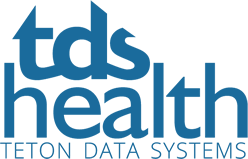Diagnostic Imaging for Pharmacists

Description
Patients undergoing diagnostic imaging procedures may receive a variety of pharmaceutical interventional agents as part of the imaging procedure. Historically, these pharmaceutical agents have been overseen by the radiology department rather than the pharmacy department. With recent changes in regulatory oversight of medication management and with accreditation bodies’ increased emphasis on the subject, pharmacists are finding themselves in need of a better understanding of the policies, procedures, and use of pharmacologic agents in the diagnostic imaging arena.
Diagnostic Imaging for Pharmacists is the only diagnostic imaging reference written specifically for pharmacists. This easy-to-use resource will provide pharmacists and student pharmacists with a basic understanding of diagnostic imaging and of pharmaceuticals used as a part of the imaging process.
Key Features:
- • Focuses on the pharmaceutical agents used in diagnostic imaging procedures.
- • Provides basic information on each type of imaging modality--X-Ray, MRI, ultrasound, and nuclear medicine.
- • Covers regulatory oversight in the diagnostic imaging area.
- • Provides a basic review of ionizing radiation.
- • Reviews radiation safety procedures.
Doody's Reviews
Quotes, Reviews or Testimonials
"The best parts of the book are the fundamental discussions of the capabilities and limitations of diagnostic imaging, and the excellent descriptions of the medications that are used either as part of the tests or in conjunction with the tests. The description of the physics surrounding each of the exams is very informative, written at the appropriate level, and easy to understand. I was particularly impressed with the chapter on nuclear imaging techniques and the associated materials."
"I am not aware of another book directed at pharmacists that provides a medication focus for diagnostic imaging. This book is written at an ideal level for pharmacists, residents, and students to help improve their overall knowledge base in the area of diagnostic imaging."
-- Thomas Johnson, Pharm.D., MBA, BCPS, FASHP (South Dakota State University) Doody's Review
Audience
Any pharmacist who practices in a hospital could benefit from this book. It will be very useful for students and residents as they learn about the various imaging techniques. The authors have significant background in radiology and imaging services, and have developed a foundational book that will help others learn about this subject.
It should be considered for any pharmacy residency library or hospital pharmacy department.




















































